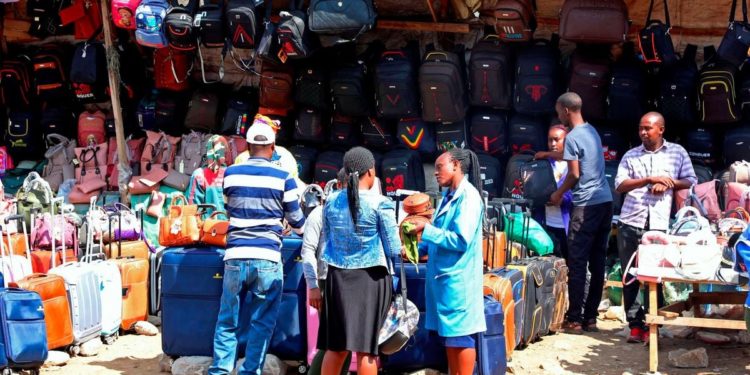Kenyan households are expected to trim discretionary or non-core spending further in the New Year as they take in the impact of high prices for goods and services across the year.
According to a new report by consultancy Deloitte dubbed the East Africa Macroeconomic Outlook, domestic households will prioritise core spending, which is expected to eat up higher expenditures leaving behind reduced income for non-core spending.
“Going into 2024, households are expected to prioritise essentials with spending on food and non-alcoholic drinks, transport, and housing set to account for 68 per cent of household expenditure,” notes the report.
The report projects household spending this year to shrink to Sh937,704 ($6,114) in 2023 and Sh929,728 ($6,062) in 2024 from Sh1,005,953 ($6,559) in 2022.
Data from the Stanbic Bank Kenya Purchasing Managers’ Index has mirrored the tightness in discretionary spending with the average reading of the PMI in the year so far standing at 48.5 points, reflecting reduced business output in response to declining orders throughout the year.
While inflation has eased since the October 2022 peak, changes in consumer prices have hovered around the Central Bank of Kenya (CBK) upper limit of 7.5 per cent implying persistent cost pressures.
According to the Kenya National Bureau of Statistics data inflation fell to 6.8 percent in November from 6.9 percent in October but was higher than the 6.7 per cent recorded in August.
Inflation expectations are, however, expected to be anchored by falling food prices as recent crop harvests hit the market alongside falling pump prices with the Energy and Petroleum Regulatory Authority announcing a trim of Sh5, Sh2, and Sh4.01 on petrol, diesel, and kerosene prices respectively.
The CBK tightened monetary policy further last week with a jumbo two per cent increase to the benchmark lending rate to 12.5 per cent from 10.5 per cent respectively on the weakening of the Kenya shilling.
Kenya’s gross domestic product is widely expected to grow faster next year on improved agricultural production and related exports and services.
The Deloitte report cites increased tax rates, slower global economic growth, and heightened debt levels as risks to the outlook impacting consumption, investment, and overall economic recovery.
The Kenyan economy grew by 5.4 per cent in the second quarter of 2023 compared to 5.2 per cent at the same time in 2022 with the growth being primarily underpinned by a rebound in agricultural activities.









Discussion about this post